Replay: Master the Negotiation Skill That Changes Everything

In this replay, we’re revisiting skills of negotiation and we’re going to continue our deep dive into influence, and why it’s exceptionally important in a negotiation.
Having influence in the moment may get you what you want immediately.
Maintaining influence in the long run makes it more likely that your requests will be granted, and sometimes without even having to ask.
What are the benefits of deliberately working on influence?
If you want to be more intentional about being influential, what actions can you take?
In this episode, I share the dos and don’ts of building influence, and how it impacts the negotiation process.
Three Things You’ll Learn In This Episode
- The exponential effect of lasting influence
When influence is working in your favor, you don’t have to negotiate as hard. Why does it get easier and easier to ask for things the more influential you become? - How to fully engage in the conversation
The more present and aware you are in a negotiation, the more influence you ...
Eliminate the Stress of a Negotiation Before You Even Show Up
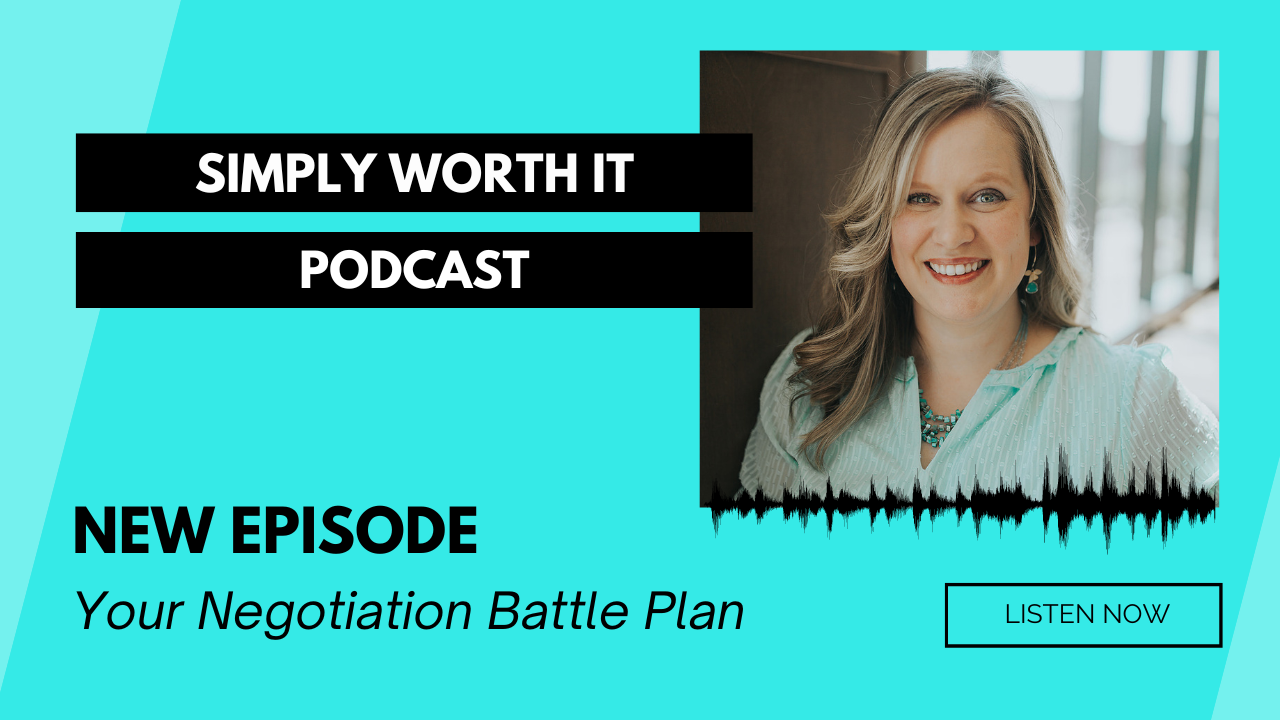
By their very nature, negotiations are high cortisol events, and that can make it hard to feel good about how we show up.
Thankfully, stress can be managed, reduced, or even eliminated by having a battle plan before the negotiation.
It eliminates ambiguity, builds up confidence, and ultimately makes us advocate for ourselves more effectively.
What steps can we take to reduce stress on the front end?
In this episode, I share strategies that will help you get ready for the negotiation.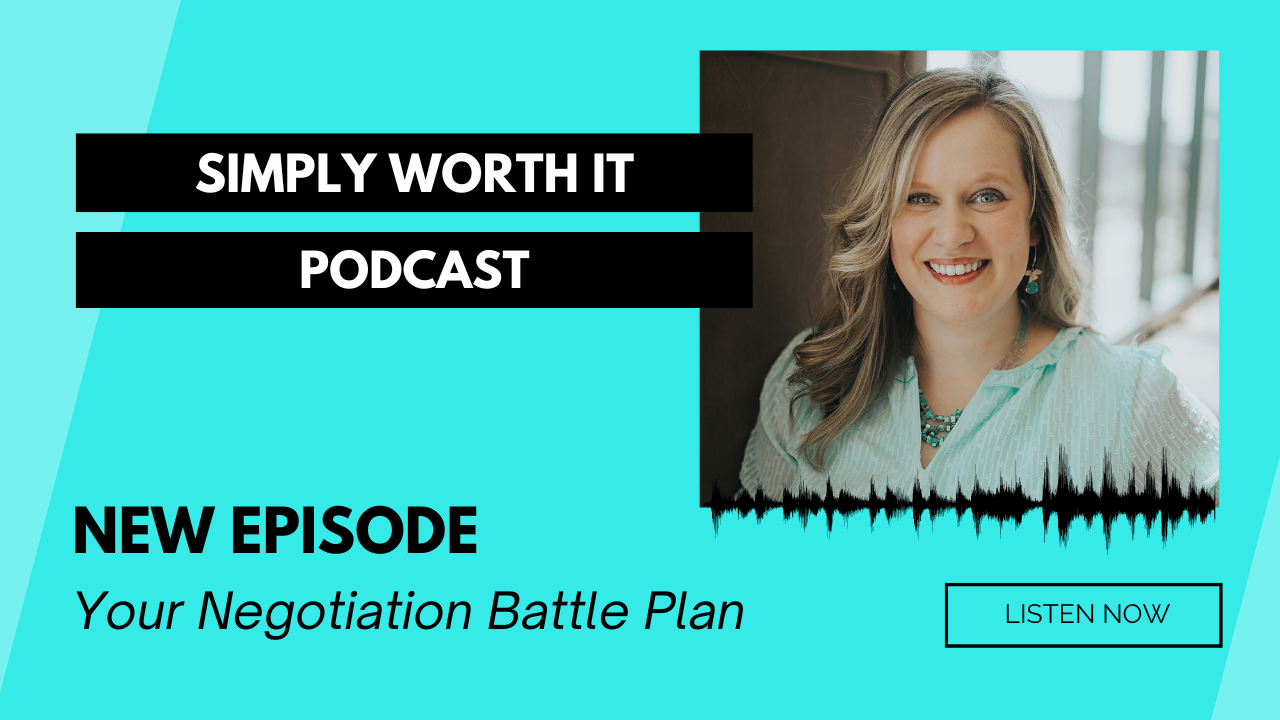
Three Things You’ll Learn In This Episode
- Any plan is better than no plan
Are we going to be more at ease when we show up prepared? - Crowdsource for success
How can insight from other people help us show up more confidently? - Use data to your advantage
Data makes us more confident. How do we arm ourselves with valuable information before the negotiation?
Autonomy is…Freedom in the Workplace: How Do We Achieve It?
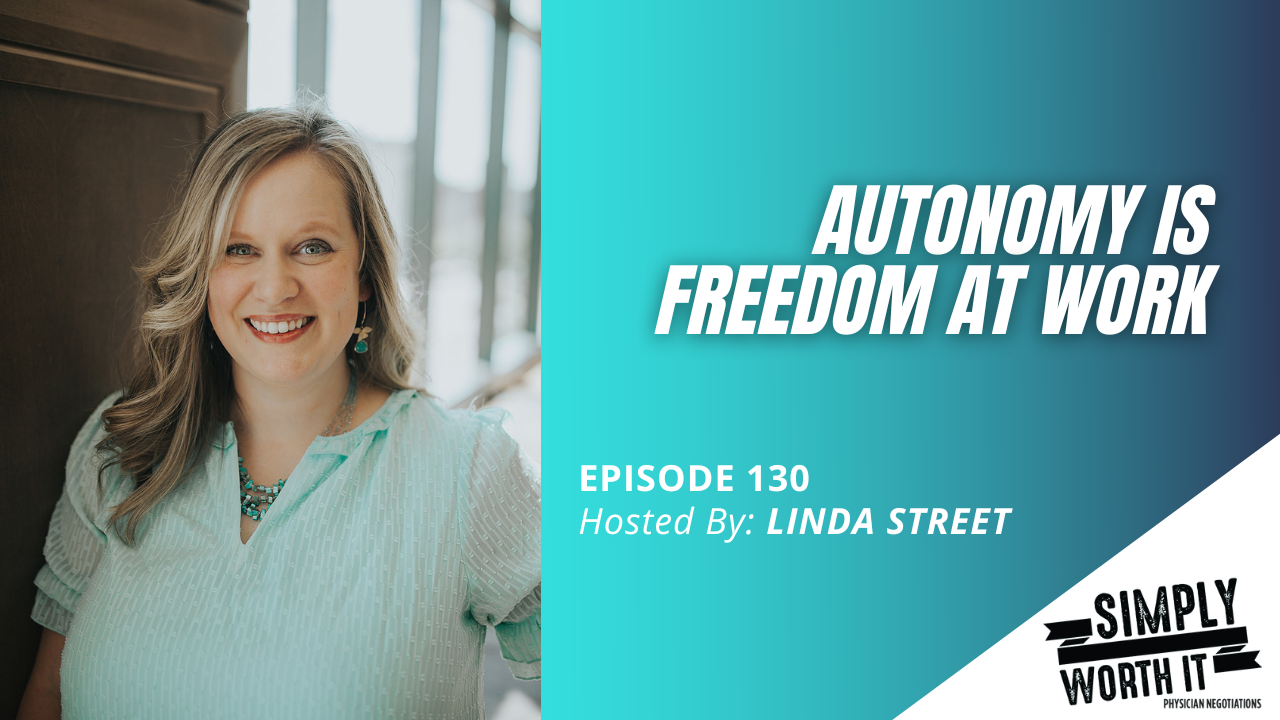
There’s no greater expression of freedom in the workplace than autonomy.
Building autonomy into our jobs is as essential as being paid appropriately for what we’re doing.
It’s well-documented that autonomy contributes to greater job satisfaction and retention.
How do we make it a part of our jobs?
In this week’s episode, as we think of the idea of freedom - I talk about autonomy and how to make it part of work.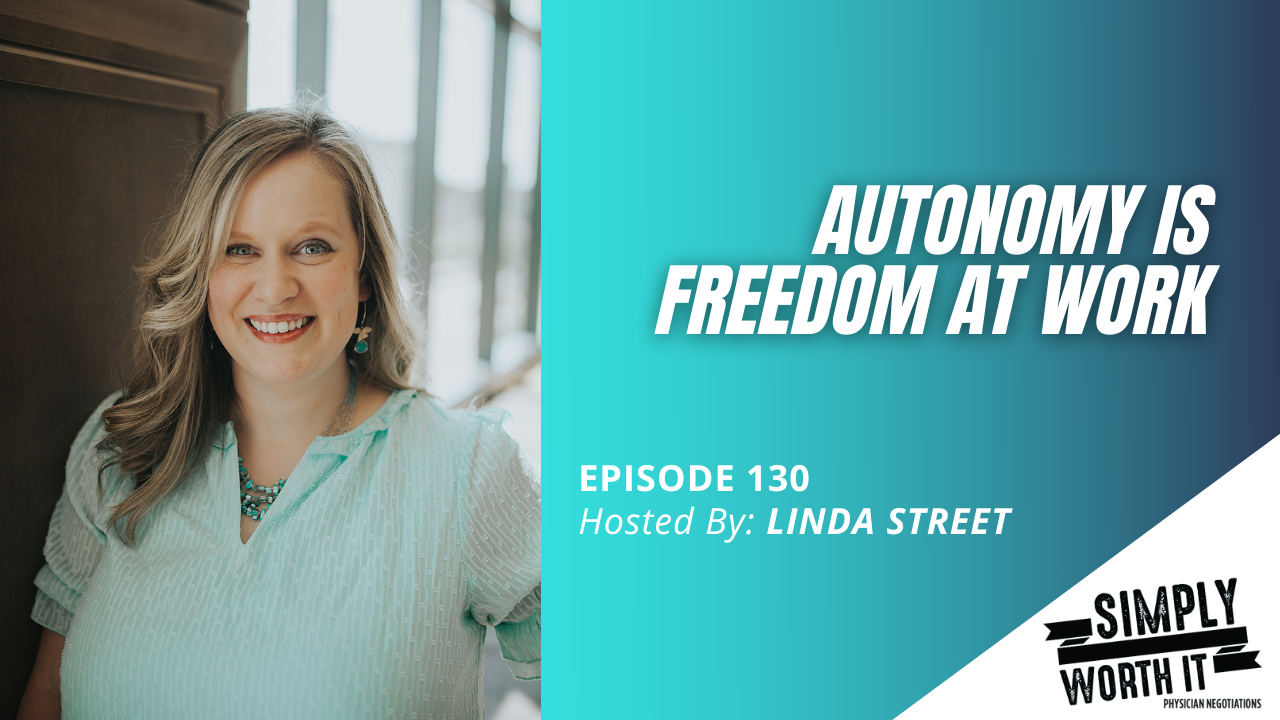
Three Things You’ll Learn In This Episode
- Autonomy can be a win-win
How do we show that autonomy doesn’t just benefit us, but our employers too? - The traits of high autonomy environments
What has to exist in culture for autonomy to be achievable? - Autonomous employees are more loyal
Can autonomy make a difference in someone staying in the job long term?
The MGMA Pay Data Doesn't Apply to My Role, What Do I Do?
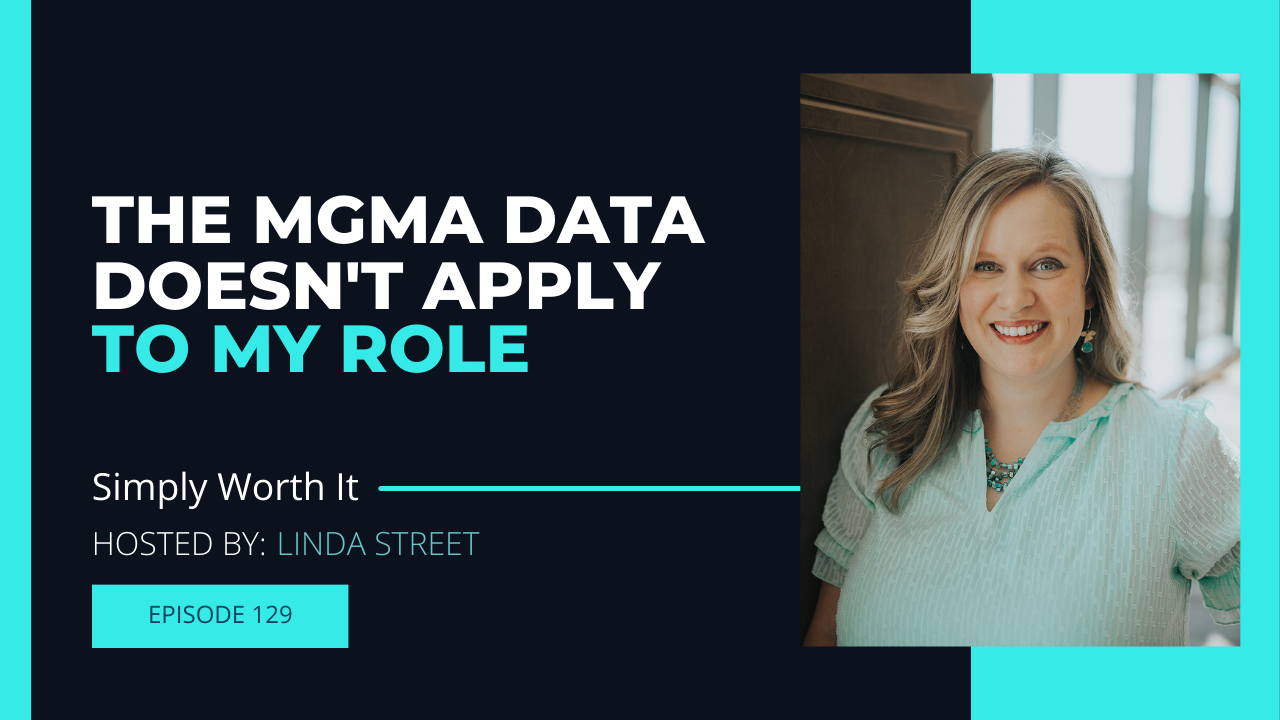
For many physicians, data sets like the MGMA provide more than enough clarity on what to negotiate for.
That’s not the case for everyone.
If your role happens to fall outside of the scope of the data set, how do you ensure that you’re compensated for the value you bring to the table?
Remember: a lack of data doesn’t mean we accept whatever’s put in front of us.
It just means we need to get creative about sourcing the info we need.
In this episode, I talk about what to do when your role and its compensation aren’t clearly defined by standard data sets.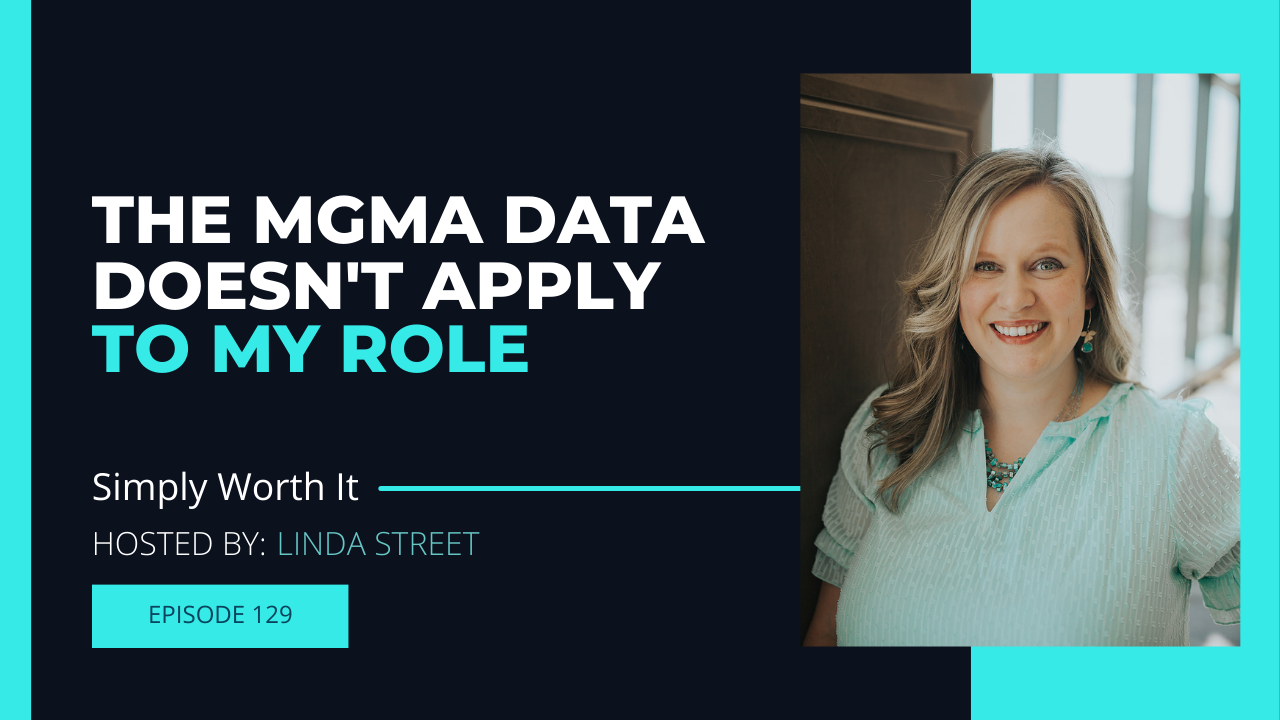
Three Things You’ll Learn In This Episode
- Great sources of non-standard pay data
How do we tap into our network when there’s no go-to data? - Accounting for C-suite roles
If your role isn’t 100% clinical, how do you know what to negotiate for? - When you don’t have years of data to pull from…
If we’re in a newer role without a ton of pay data behind it, how do we make sure we’re sufficiently compensated for the value we bring?
MGMA 2023 Data Part 2: Where Do Physicians Have the Most Leverage?
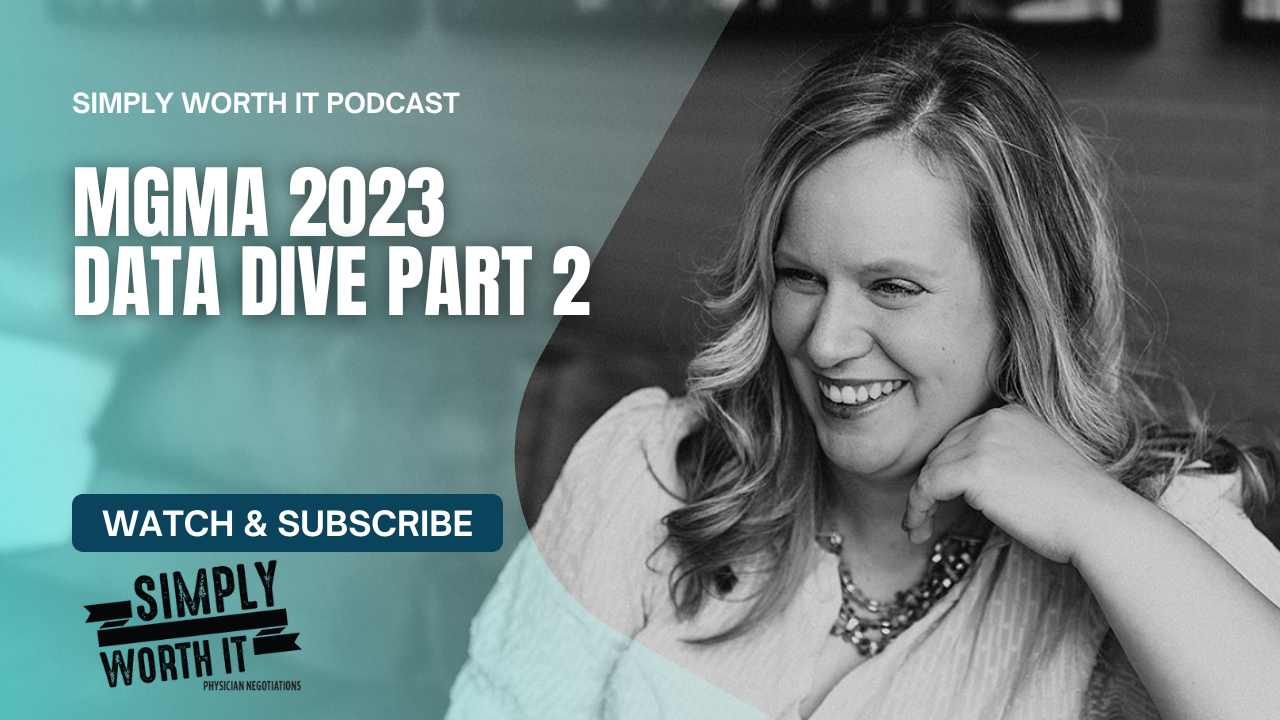
The MGMA pay data is valuable information we can leverage to not just get paid better.
It can also allow us to advocate changes that keep us in medicine as a whole.
This is especially critical now as we deal with a physician shortage, doubled with the retirement of many doctors.
With these pressures, paying you what you’re worth is a top priority for our employers and we can use this to our advantage.
Ultimately: we’ve made a lot of progress, but there’s still a lot of work to do.
In this episode, we pick up from where we left off last week - going through the 2023 physician pay data.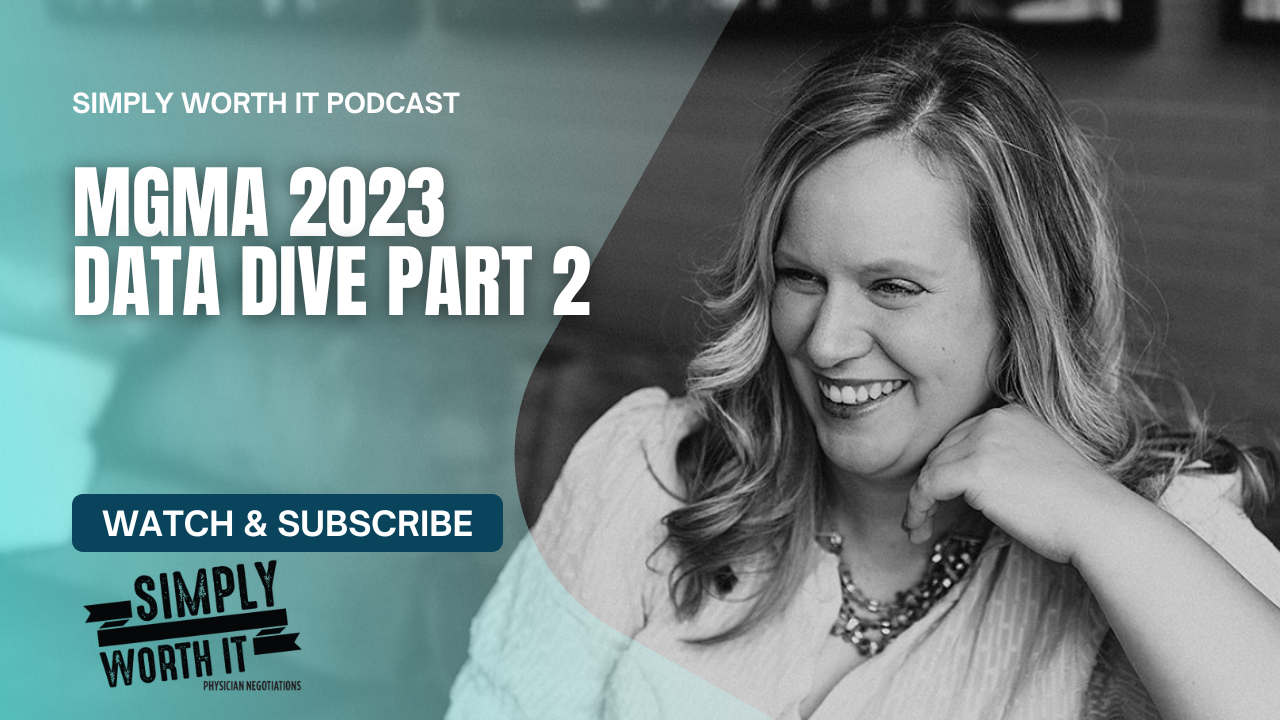
Three Things You’ll Learn In This Episode
- The flexibility factor
Are more organizations and hospital systems open to giving us flexibility in our schedules? - Where we have the most leverage
With shortages and pending retirements, how do we get employers to buy into keeping us happy? - Production-based compensation vs. guaranteed salaries
How can the way we’re paid impact how we feel about our jobs?
...
MGMA 2023 Data: What's New in the World of Physician Pay?
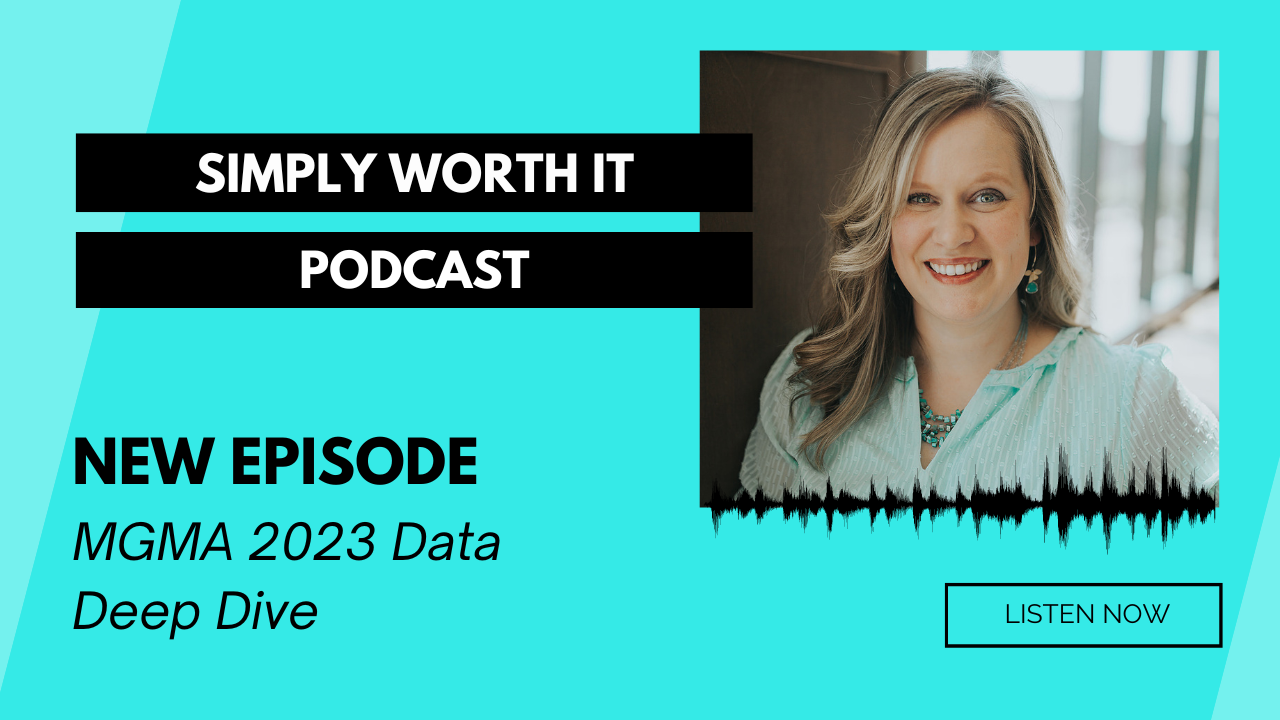
One of the best ways to see if we’re being paid what we’re worth is compensation data.
Now that the latest MGMA DataDive has dropped, we can learn a lot about where we stand.
My ultimate takeaway from this information?
We have a lot more leverage and opportunity to advocate for ourselves right now.
How has inflation played into compensation?
Did productivity go up with pay?
In this episode, I dive into the data and share the actions we can take from it.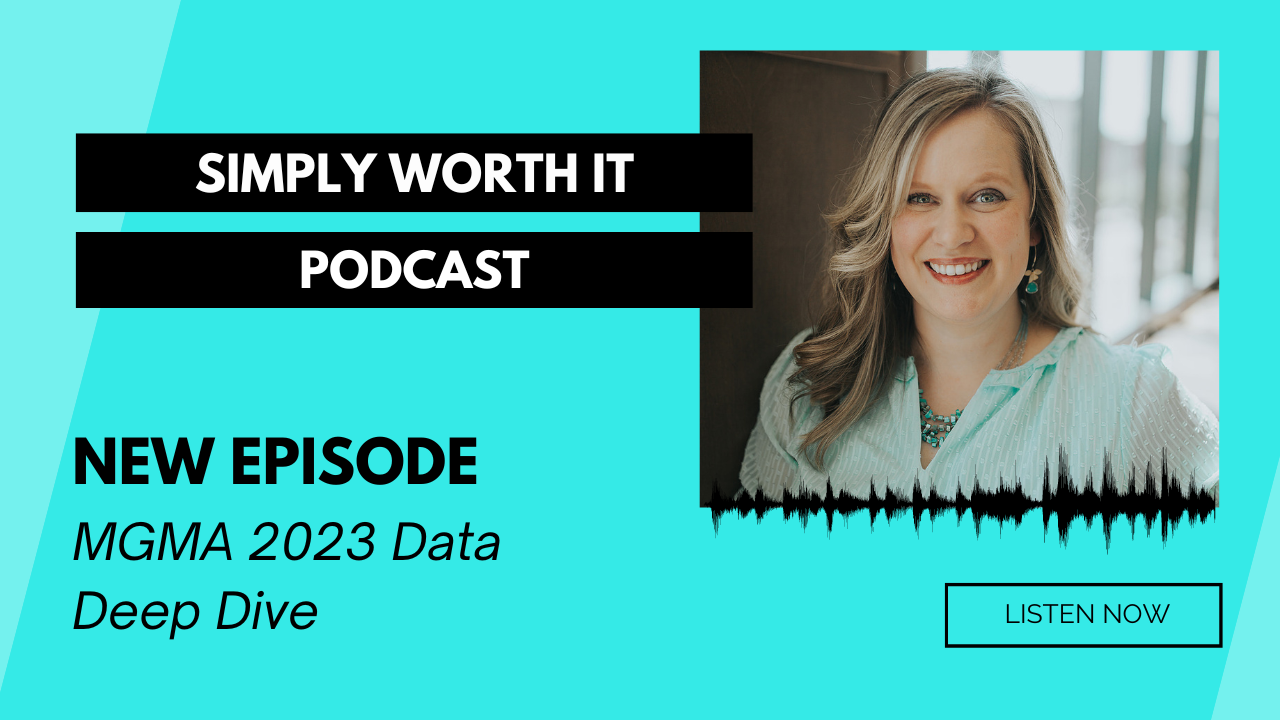
Three Things You’ll Learn In This Episode
- The good news and the bad news
None of us have kept up with inflation, how can we negotiate so that we can catch up even a little? - Owning the value you bring as a new physician
New grads and new hires have set an encouraging trend in compensation, what can we learn from them? - The link between where you live and how much $$$ you get paid
Regional arbitrage is real. Can we earn more by getting a new job in a next-door state?
Replay: The Ultimate Guide to Clinical Medicine Models
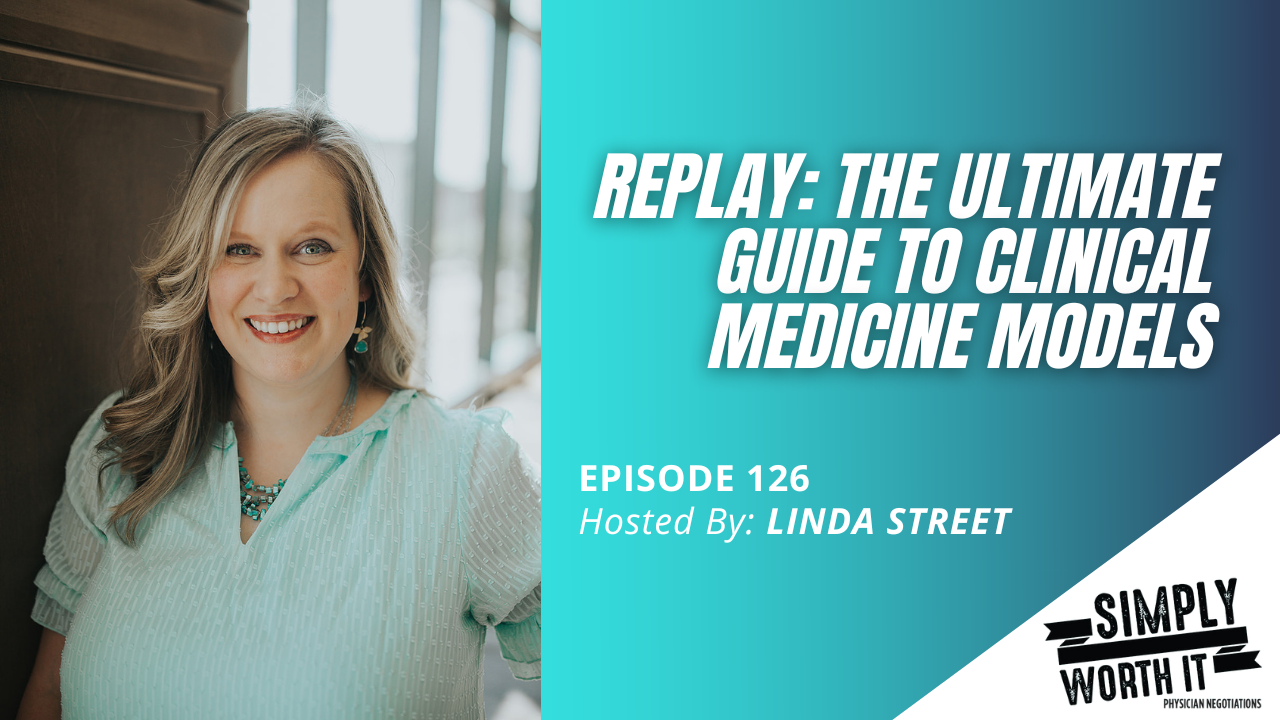
Clinical medicine isn’t a straight and narrow road with no wiggle room or options.
The path of patient care isn’t rigid at all...there are a few ways for us to treat patients without being pigeonholed into one way to practice.
What are the different models for working and earning money?
If we crave a little more freedom and flexibility, what’s the best path?
In today’s episode, I talk about the different models clinical physicians can choose, and why knowing all the options gives you an advantage at the negotiating table.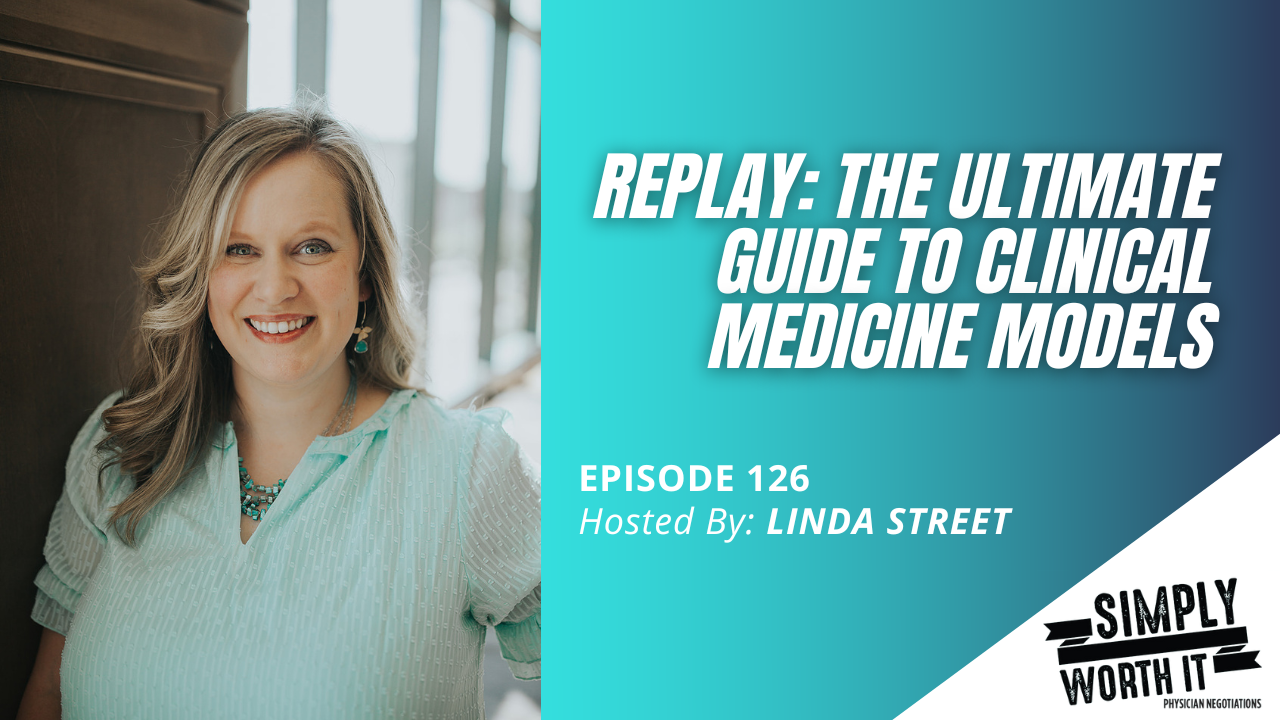
Three Things You’ll Learn In This Episode
- The pros and cons of practicing medicine under a corporate employer
Is autonomy possible in the corporate medicine model, or do we give up flexibility for stability? - Why private practice can be a great fit
There’s a lot less red tape when you’re running your own practice, but what are the risks of running your own business? - How to get more out of your career through locums
Why are locums so great for people who want more fl...
The Negotiation Ended in Disappointment, What Now?

In last week’s episode, I talked about an impending negotiation and how I was preparing for it.
Unfortunately, things didn’t go well.
An agreement couldn’t be reached, and in the aftermath, I’ve been reeling and working through the emotional fallout.
Sometimes the outcome of a negotiation isn’t what we hoped for, and it’s okay not to be okay.
How do we cope with a disappointing result?
In this episode, I share the lessons I’ve learned after my negotiation didn’t go well.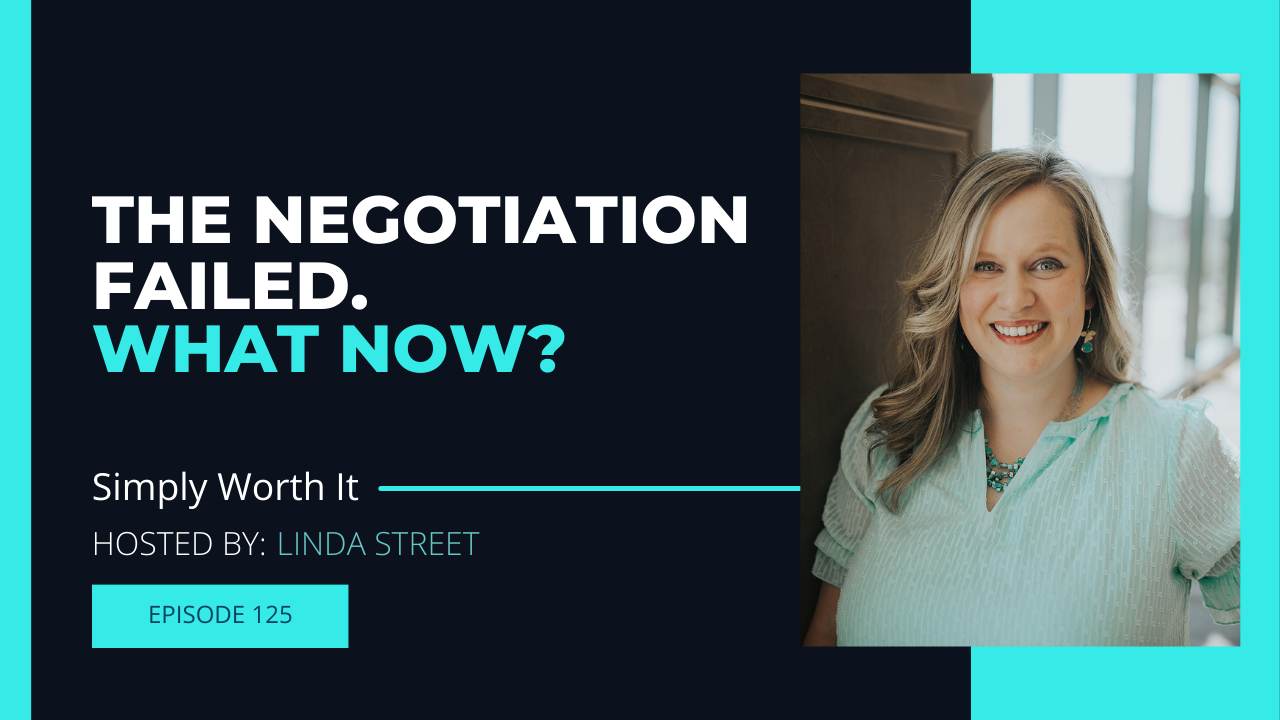
Three Things You’ll Learn In This Episode
- Allow space for it to suck
Why do we need to create room to feel our feelings, even the not-so-great ones? - The truth you know vs. what they’re saying about you
When your narrative and the other side’s narrative are divergent, how do you deal with it? - The most important decision you’ll make
Even when things don’t go our way, how do we control our definition of success?
All the Feels: How to Deal with Conflicting Emotions Around a Negotiation

An impending negotiation can spark many different emotions, from anticipation and hope to nervousness and even dread.
What if all those emotions show up all at once, creating a simmering stew of overwhelm?
Not good.
We’re not always going to go into a negotiation feeling 100% positive about it, and that’s okay.
It’s important, however, to parse through those emotions so we can effectively go to bat for ourselves.
How do we work through a hodgepodge of emotions if the negotiation has us all over the place?
In this episode, I talk about getting into the right headspace if you’re feeling all the things.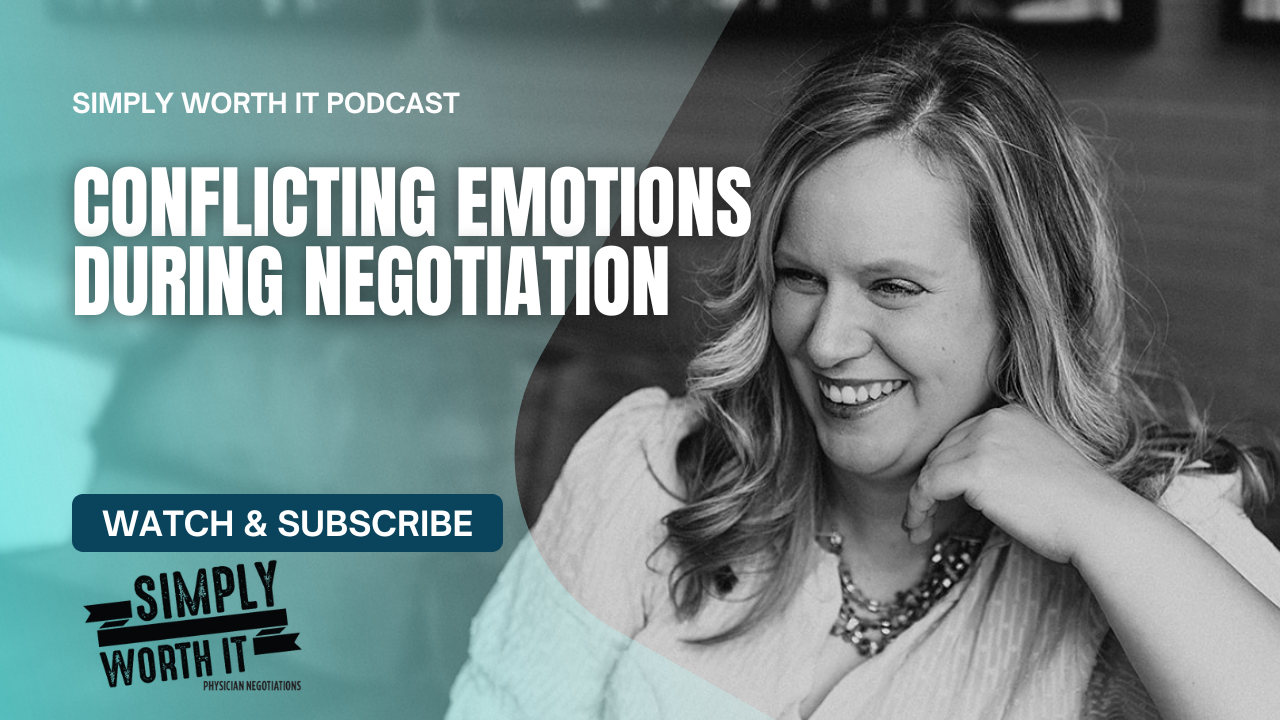
Three Things You’ll Learn In This Episode
- A thought download exercise
If the negotiation is bringing up all sorts of feelings, how do we sort through them? - Fact vs. story
Can we decide the thoughts we want to show up with even if parts of the situation are out of our control? - Choose success ahead of time
Agreement or no agreement, how do we make sure we come out of a negotiation feeling g...
Hassle-Free Re-entry: How to Return to the Workforce After Extended Time Away
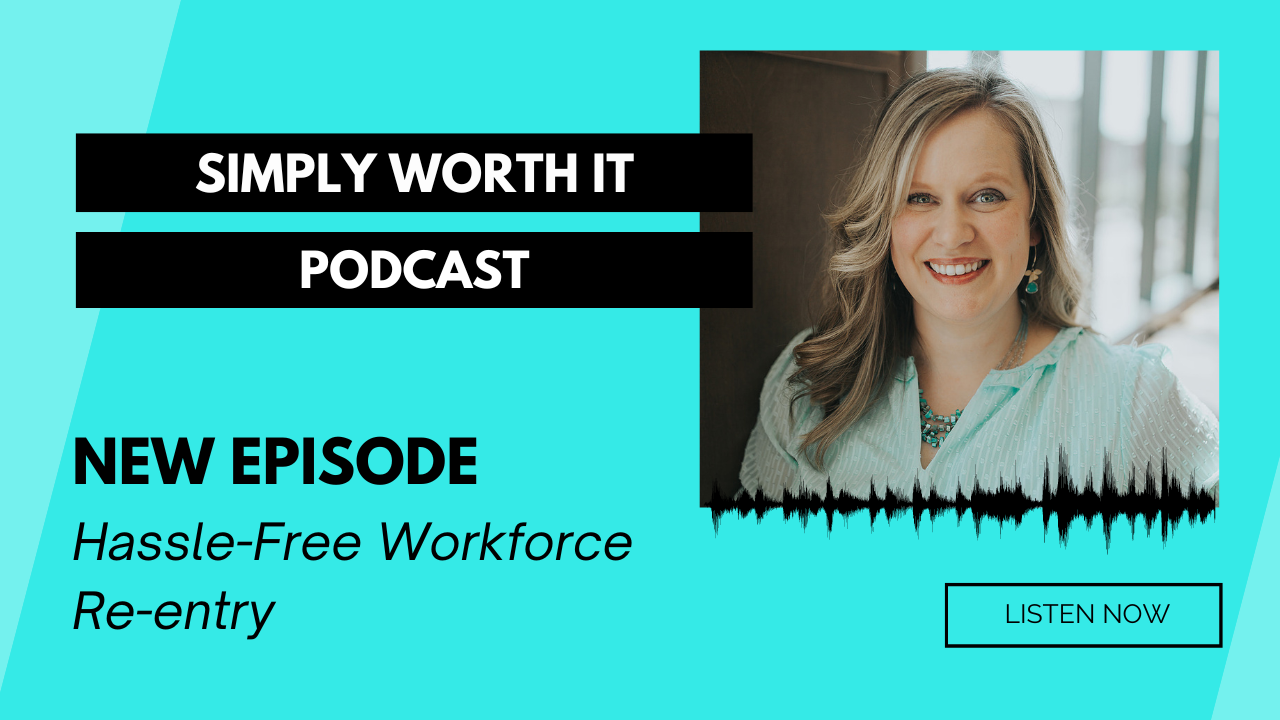
Whether it’s maternity leave, a self-imposed break, or long periods between jobs, resume gaps are something we’re taught to dread.
It’s like going into career purgatory with no way of coming back.
Could the time away destroy the momentum we’ve built?
How many hurdles will we have to jump over to come back?
In this episode, I share how to mitigate the challenges that can come from stepping away from the workforce.
You’ll learn how to step away and re-enter with ease.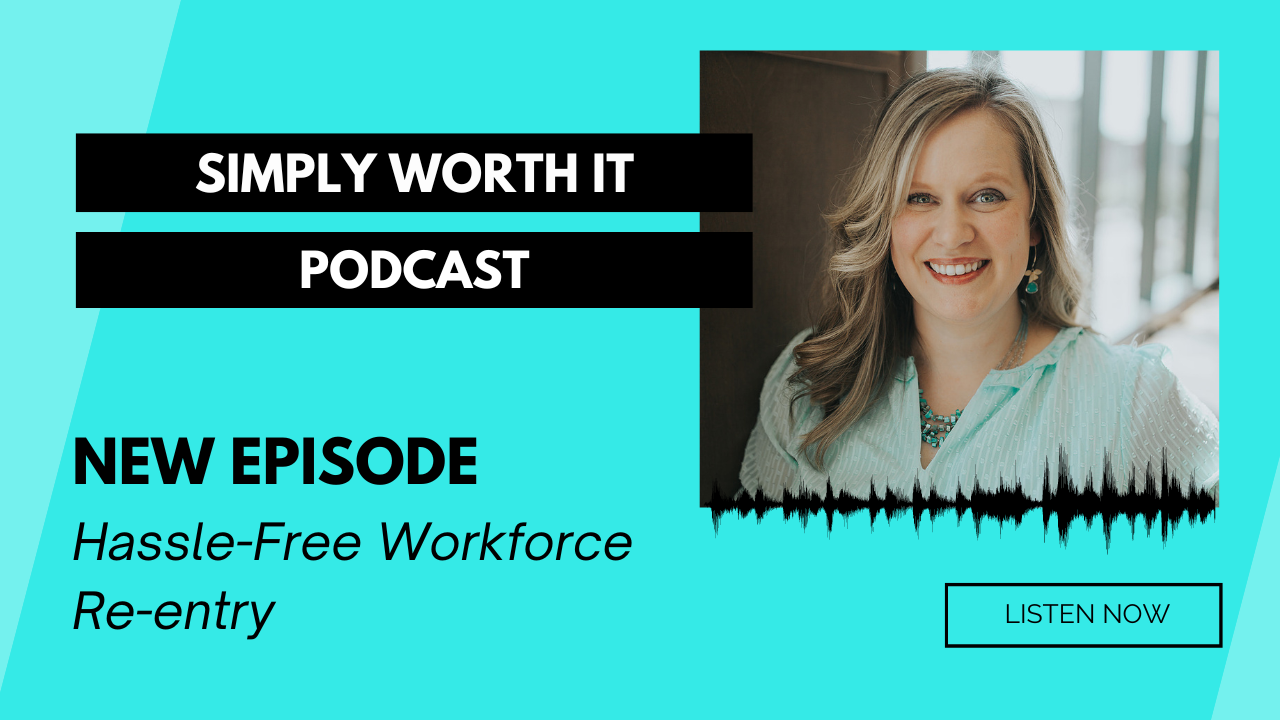
Three Things You’ll Learn In This Episode
- Getting around bureaucratic hurdles
If we take time away, we might have to prove that we’re clinically competent. How do we mitigate this ahead of time? - How to be intentional about your next job
If we need to recover from a toxic work environment, is it wise to heal before the next opportunity? - Present time away as an asset, not a liability
Are attitudes towards job-hopping starting to change?

